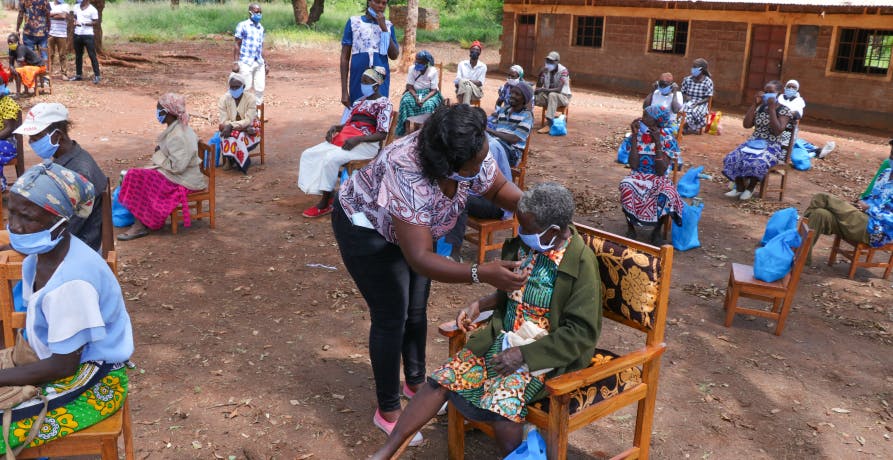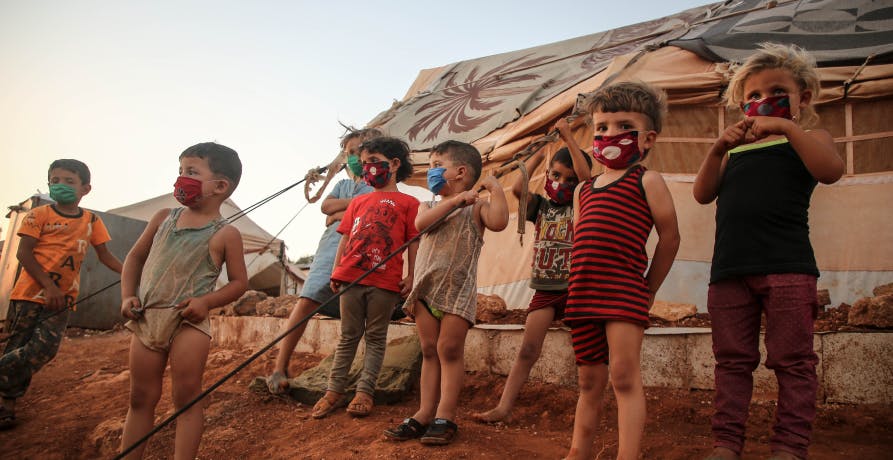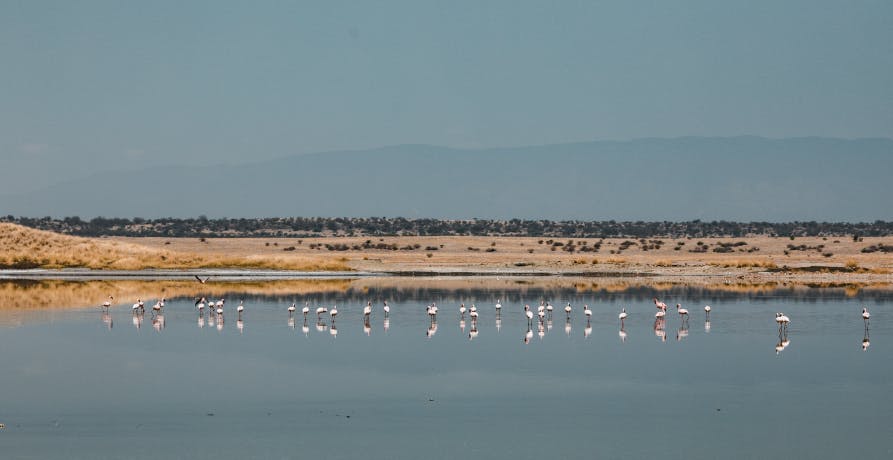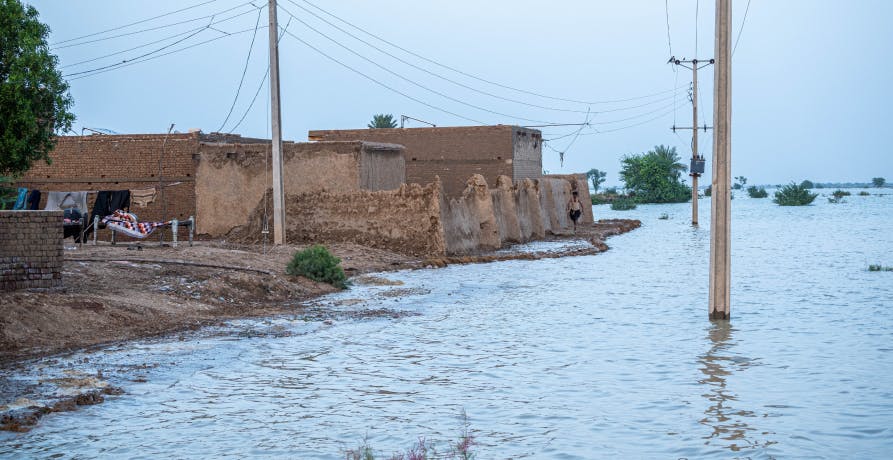
Impacts, Risks, and Opportunities (IRO) for CSRD Reporting
In this article, we’ll break down what IROs are, how to identify and assess them, and what CSRD requires in terms of disclosure.
ESG / CSR
Industries



As one of the world's wealthiest and historically most polluting countries, the UK has a responsibility towards developing nations who are disproportionately suffering as a result of climate change. International Climate Finance (ICF) is the UK’s primary mechanism for supporting developing countries as they try to adapt to the effects of climate change and reduce their carbon emissions.
👉 In this article we’ll explore what ICF means, why it’s important, and how effective it has been when it comes to climate change adaptation and mitigation.
The UK Government recognises the need to take action to limit and manage the impact of climate change and so it created UK International Climate Finance (ICF). ICF is a commitment to support developing countries to respond to the challenges and opportunities of climate change and the UK Government has committed to investing £11.6 billion worth of financial support between 2021 and 2026, with at least 3 billion targeting climate change solutions that protect, restore and sustainably manage nature.
👉 This is actually the third phase of financing, and £9.8 billion has already been invested between 2011 and 2021.
There are three departments responsible for management of the UK’s ICF fund, these are:
The three bodies work together to achieve the UK Government’s aid strategy aims of:
ICF supports both adaptation (ie. helping countries and communities to deal with the repercussions of climate change) and mitigation (reducing carbon emissions and supporting the development of green technologies). It does this primarily through enabling access to finance, the transfer of technology knowledge and capacity building.
There are over 200 projects across the globe that work towards different climate related objectives through the use of bilateral activities and partnerships, as well as multilateral climate funds and initiatives that aim to deliver at scale. Through these mechanisms the UK Government is able to contribute by supporting the resilience of some of the world's poorest communities, push for progress on the clean energy transition and infrastructure, and to halt deforestation and the destruction of nature.

The world is barreling towards climate disaster, and the window for taking meaningful action to prevent the worst effects is closing. This is why recent international and national targets have been set to keep global temperatures from rising above 1.5 degrees celsius.
Yet, even if we manage to limit temperature rise and to achieve net zero emissions by 2050, we won’t be able to mitigate all the negative impacts of climate change. In fact, we’re already seeing the effects. In 2022, Europe experienced its hottest summer on record and its worst recorded drought in over 500 years, China recorded its most severe heat wave ever, both polar regions also recorded record temperatures and intense warming periods, Pakistan suffered a catastrophic flood which covered a third of the country. Unfortunately, these events are not unique and the situation is expected to get worse before it gets better.
The Intergovernmental Panel on Climate Change’s (IPCC) latest assessment lays out how climate change is already having devastating impacts globally. It highlights the interdependence of climate ecosystems, biodiversity and human society, requiring an integrated approach if we are to effectively mitigate the worst effects of climate change and prevent further deterioration.
The IPCC estimated that by 2030, climate change and environmental deterioration could push 100 million people globally into poverty, as well as increase incidences of food and water insecurity, with those most likely to be worst impacted being those who are already the poorest and most vulnerable.
This is why there has been a push for developed nations to commit to helping developing countries mitigate and adapt to climate change. The UK is one of a number of developed countries who has committed to mobilise 100 billion USD per year in climate finance (globally).

The UK Government estimates that for every £1 it invests in climate-related risk mitigation or adaptation between £3 and £50 is avoided in disaster related costs. And every £1 spent in reducing carbon emissions pays for itself between 5 and 20 times over by offsetting the future costs of climate change. The ICF achieves this by:
ICF investments began in April 2011 and over 290 different programmes have reported results since then. Its impact is measured across 17 different KPIs and gives us a pretty good picture of its impact between 2011 and 2022. Highlights from the most recent ICF Results include:
Let's take a closer look at some of the projects that have helped to achieve these results.
The UK works with the CTF to finance large-scale renewable energy technologies like solar power and wind power. The fund also acts as a template for other private secret investments, proving that green technology is worth investing in.

CLARE is a project that supports climate related disaster risk management and recovery. For example it supported the Weather and Climate Information Services for Africa initiative (WISER) which delivers accurate weather forecasts to over 14 million people in East and West Africa. It has contributed to a 30% reduction in weather related deaths on Lake Victoria which equates to around 300 lives saved per year.

This programme supports change to the operation of clean energy markets by improving access to and awareness of clean energy options, supporting health and safety, and promoting economic opportunities for women living in developing countries. An example of their work in action is the powering of health clinics with solar energy - there are 62 of these clinics now in operation across Ghana and Uganda.

South Sudan is one of the most vulnerable countries when it comes to climate change. Over 90% of its population is reliant on climate sensitive factors for their livelihoods which means that the impacts of climate change are keenly felt. IRISS is funded by ICF and aims to build resilience to floods and droughts by working with local communities to build their knowledge and skills to enable them to build up long lasting sources of food. This is achieved by helping local communities to build climate-resilient agriculture skills, as well as the provision of tools and seeds.

The UK’s ICF commitment is the primary tool the UK has to support developing countries as they are forced to adapt to the challenges of climate change and reduce their carbon emissions. The UK has pledged a spend of £11.6 billion over the next five years, but as the UK faces budgetary strains and domestic cut-backs there is concern that the UK’s international aid budget might be at risk. The UK Government has already missed several funding deadlines including a payment to the Green Climate Fund and another pledge to the Adaptation Fund.
Another concern levelled at the UK Government is that it is not contributing enough money, and that it is falling short when it comes to funding their fair share of climate funding (based on past emissions). Analysis shows that although the UK is not the worst offender when it comes to underfunding, it falls short by about 1.4 billion USD annually. Wealthy nations such as the UK are largely responsible for the climate crises and must be held accountable when it comes to providing their fair share of climate finance to help those who suffer most from the impact of global warming.
Despite concerns that UK aid provided via ICF is at risk from budgetary constraints, the UK recently committed to the creation of a new international fund to help tackle the effects of climate change.
The 27th UN Climate Change Conference (COP27) resulted in a deal to establish a new fund in which countries responsible for high levels of carbon emissions (such as the UK) will compensate developing countries suffering from the worst effects of climate change.
The loss and damage fund seeks to address the fundamental imbalance when it comes to climate change - ie. that the countries who are worst affected by climate change tend to be those who are the least responsible.
Much work still needs to be carried out when it comes to finalising the details of the loss and damage fund and decisions need to be made with regards to its structure, the amount of money to be paid by different counties, management and oversight mechanisms, and who will benefit from the funds. These issues will be tackled by the Transitional Committee who have been tasked to come up with a proposal, due to be shared and discussed in December 2028 at COP28.
The UK has signalled that it remains committed to delivering on its commitments when it comes to International Climate Finance. The UK Government has stated that addressing the challenges associated with climate change and biodiversity loss is the top priority for the Government over the next decade. It also remains committed to ICF investment as the primary instrument to support developing countries.
At Greenly we can help you to assess your company’s carbon footprint, and then give you the tools you need to cut down on emissions. Why not request a free demo with one of our experts - no obligation or commitment required.
If reading this article has inspired you to consider your company’s own carbon footprint, Greenly can help. Learn more about Greenly’s carbon management platform here.